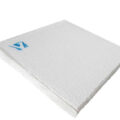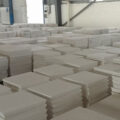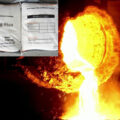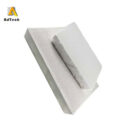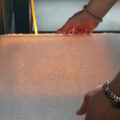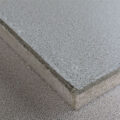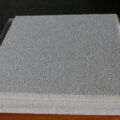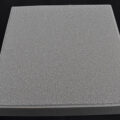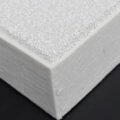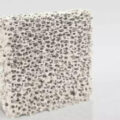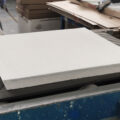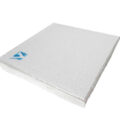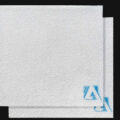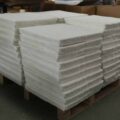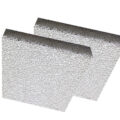The use of ceramic foam filter plates to filter is currently the most effective way to remove inclusions for Ghana aluminum melt purification. The metal filter mesh and fiber cloth filter used by low-end customers can only remove large inclusions in the aluminum alloy melt. However, the inclusions below the micron level cannot be removed, and the metal filter will also pollute the aluminum alloy. The use of foam ceramic filter plates can filter out fine inclusions and significantly improve the mechanical properties and appearance quality of the Ghana Aluminum product.
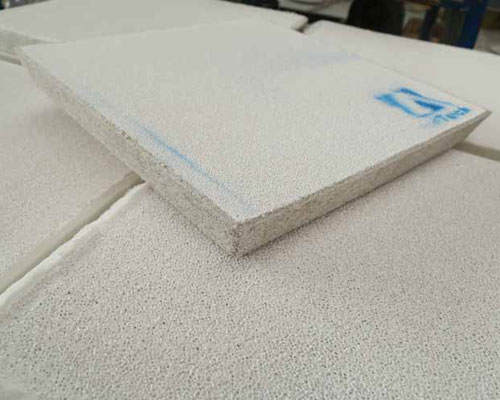
Ceramic filter for Ghana Aluminum is not only good in purification technology, but also easy to use. The initial pressure difference through which the melt passes are only 100~150 mm, and once it passes, it only needs to maintain a pressure difference of 2-10 mm. The principle of ceramic foam filtration and purification is the same as that of ceramic tube filtration, which is a deep filtration mechanism and has a higher porosity (80%-90%) than ceramic tubes. Therefore, it has a large flow capacity and is suitable for filtration in continuous casting and rolling production.
The President of Ghana unveiled the Ghanaian aluminum industry integration project and started the development and utilization strategy of bauxite resources.
The strategy is divided into 4 phases. The first phase is to expand the current output of bauxite in Northwestern Province and build a refined aluminum plant. The second and third phases will develop bauxite and build a refined aluminum plant in two other regions. The fourth stage is the establishment of Würth Aluminum Company in Tema, Greater Accra.
The US$6 billion required for the entire development plan needs to be privately invested in the Ghana Aluminum Integrated Development Corporation (GIADEC). The Ghanaian government hopes that the development strategy will make full use of Ghana’s bauxite resources, establish a globally competitive aluminum industry, and revitalize the local economy and expand employment.

